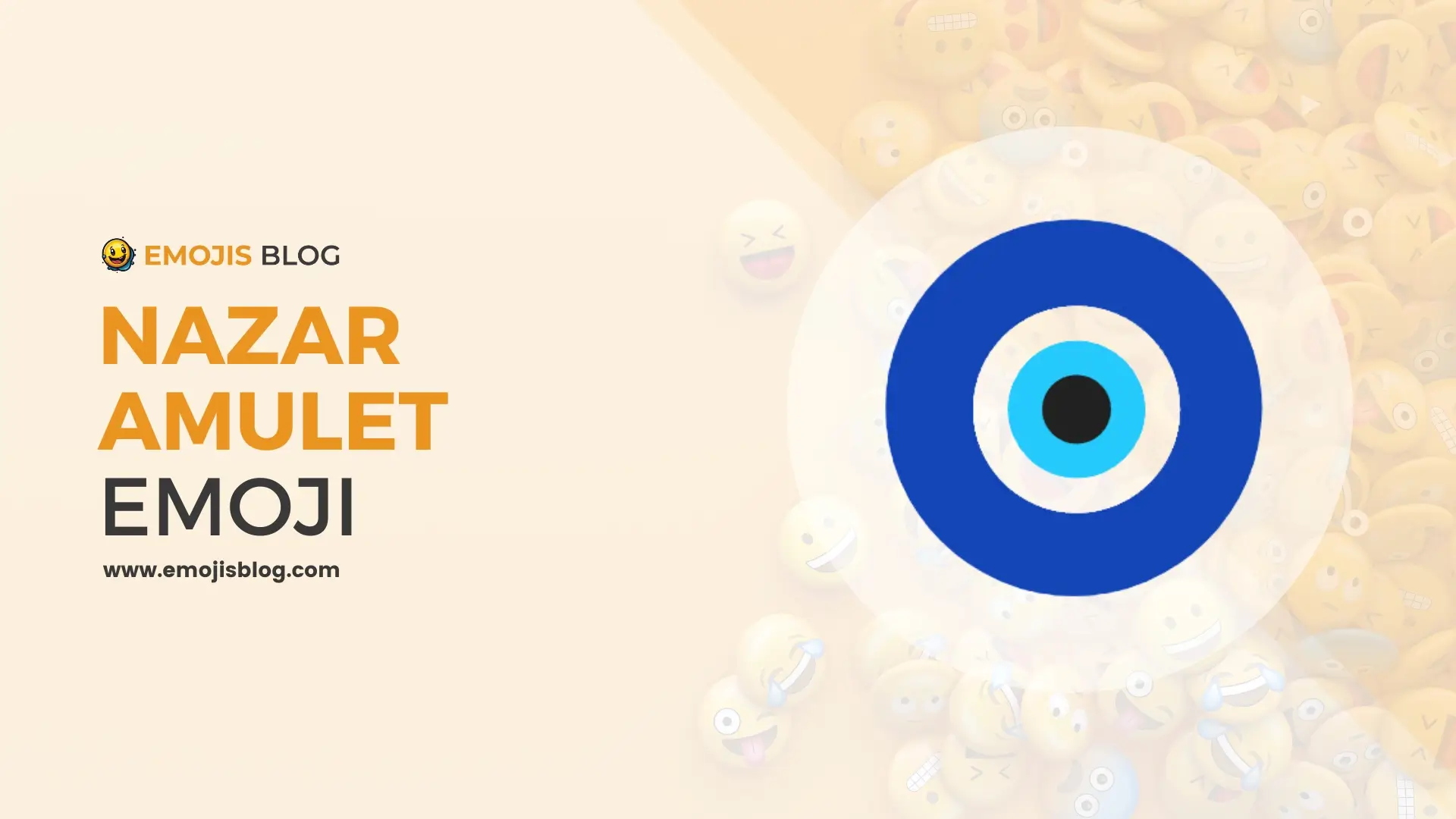What Does This Emoji Mean 🧿
🧿
What Does This Emoji Mean 🧿
The eye-shaped emoji (🧿), known as the Nazar amulet, represents protection against negativity and misfortune. It originates from ancient Mesopotamia and symbolizes warding off the “evil eye” – envious stares and malevolent glances. Its blue color reflects negative energy, and its presence is seen across diverse cultures, from the Mediterranean and the Middle East to India and Greece. Today, the Nazar amulet transcends its traditional purpose, becoming a symbol of good luck, positive vibes, and admiration, popularly used as jewelry, home décor, and even an emoji.
Technical Information
| Feature | Description |
|---|---|
| Unicode Name | Eye in Speech Bubble |
| Unicode Version | 11.0 |
| Emoji Version | 11.0 |
| Emoji Codepoint | U+1F9FF |
| Emoji Presentation | Eye-shaped bead with concentric circles, typically in blue, white, and black. |
| Common Names | Nazar Amulet, Evil Eye Bead, Blue Bead |
| First Appearing Platforms | Android 11.0, iOS 12.1 |
| Common Usage | Protection from negativity, good luck, positive vibes, admiration, attention |
| Variations | The design and size may vary slightly across platforms. |
| Related Emojis | ️️ EYE IN SPEECH BUBBLE, EYES,️ NAZAR AMULET IN SPEECH BUBBLE |
| HTML Entity | 🧿 |
Demystifying the Nazar Amulet Emoji: A Journey Through Its History and Meaning
The alluring eye-shaped emoji, , commonly known as the Nazar amulet, has become a widespread symbol across social media and online platforms. But what does it truly represent? This article delves into the rich history, diverse interpretations, and cultural significance of this enigmatic symbol.
A Glimpse into the Origins and Evolution
The Nazar amulet, also known as the “evil eye bead,” originated in ancient Mesopotamia and Egypt, where it symbolized protection against malevolent glances and envious stares. Its journey through time has seen its presence in various cultures across the Mediterranean, the Balkans, the Middle East, and Central Asia.
Traditionally, the Nazar amulet was crafted from glass or ceramic, bearing distinctive concentric circles and a central blue bead. The blue color, symbolizing the sky and water, was believed to reflect negative energy and ward off misfortune.
The Power of the Eye: Cross-Cultural Interpretations
The Nazar amulet holds diverse meanings across different cultures. In Turkey, it’s called “nazar boncuğu” and is believed to shield individuals and belongings from the envy of others. In Greece, it’s known as “mati” and protects against misfortune and ill health.
In the Arab world, the amulet is called “nazar” and is often accompanied by the phrase “Masha’Allah,” expressing gratitude and deflecting envy. In India, it’s referred to as “drishti” and protects against negative energy and bad luck.
Modern-Day Significance: Beyond Traditional Beliefs
The Nazar amulet has transcended its traditional purpose and become a symbol of protection, good luck, and positive vibes in the modern world. It’s widely used as jewelry, home décor, and even a popular social media emoji.
The emoji’s versatility allows it to represent various emotions and intentions, including:
- Protection: Guarding against negativity, envy, and bad luck.
- Good luck. Wishing for fortune, success, and prosperity.
- Admiration: Expressing appreciation and praise.
- Attention: Highlighting something important or noteworthy.
A Symbol for All: Embracing the Nazar Amulet
The Nazar amulet’s enduring appeal lies in its universality. It transcends cultural and religious boundaries, offering a sense of comfort and protection to individuals seeking a shield against negativity and misfortune.
Whether worn as a piece of jewelry, displayed in a home, or simply used as an emoji, the Nazar amulet serves as a reminder to focus on positivity, appreciate the good in life, and trust that good fortune will prevail.
So, the next time you encounter the Nazar amulet emoji, remember its rich history, diverse interpretations, and empowering message. Embrace the positive energy and let the evil eye be a symbol of hope, resilience, and good luck.

